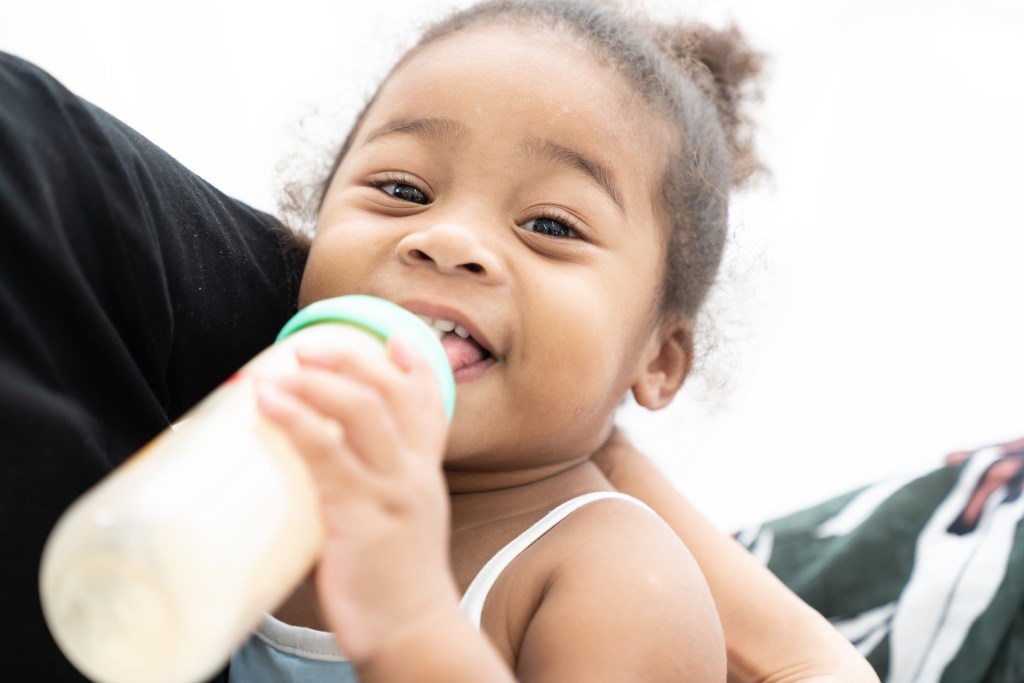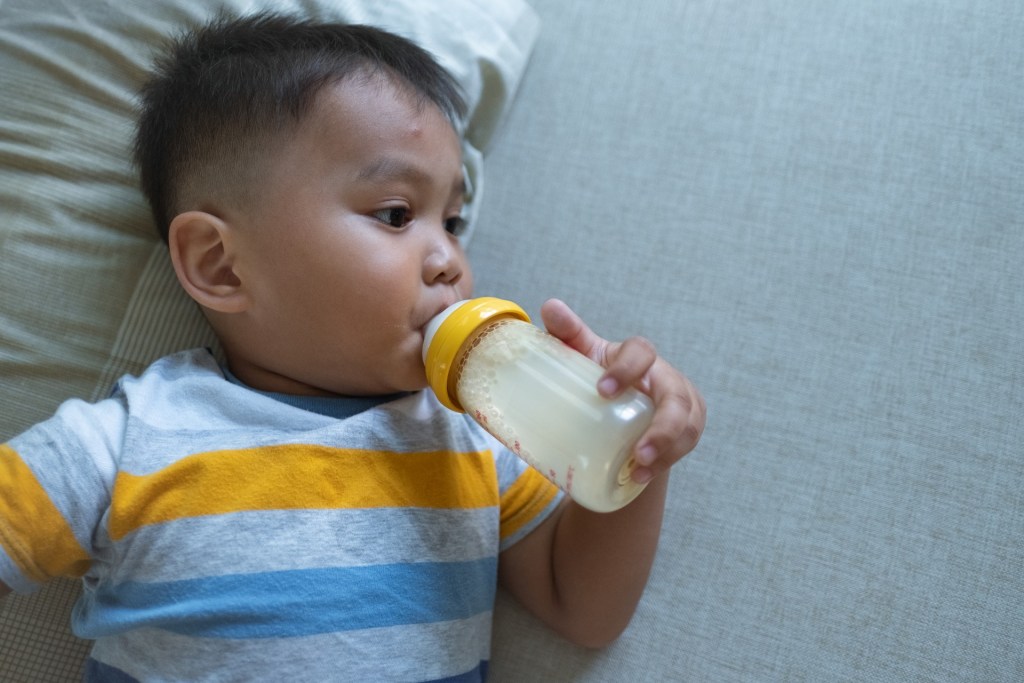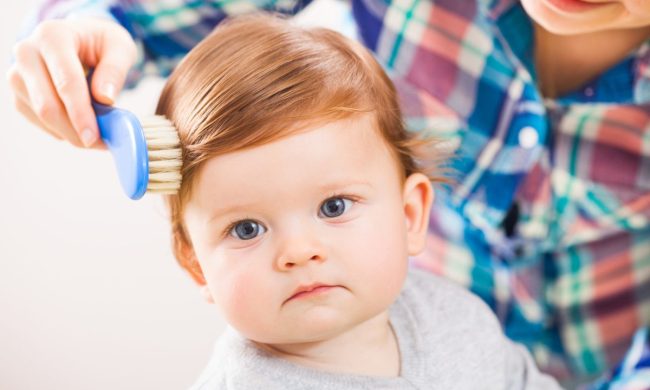Is toddler formula a parent’s best friend or an unnecessary foe? And should parents be stocking up on this product as their little ones quickly approach the toddler phase of life? If you’ve seen toddler formula on the shelves of your local supermarket or talked about on a blog you follow on social media, we’re here to dish on the pros and cons of the product and whether parents need to add it to their pantry shelves.

What is toddler formula?
Available from a wide variety of top infant formula companies such as Gerber, Earth’s Life and Enfamil, toddler formula is marketed toward parents with kids ages 9 months through 3 years of age. Sometimes referred to as toddler transitions formula or toddler milk, toddler formula is essentially a mixture of powdered milk, various sweeteners and cold-pressed vegetable oil. It’s because of these ingredients that most parents – and pediatricians – do not recommend using this product for toddlers.
One theory behind avoiding toddler formula involves children becoming used to receiving the formula and outright refusing or showing aversion towards cow’s milk — and other versions of dairy and non-dairy milks – in the future. The addition of sweeteners to the powdered milk in toddler formula is also a cause for concern in parent groups and physician’s offices.

Is toddler formula safe?
While not outright dangerous for the children who may consume it, toddler milk is something that is not regulated and monitored like its infant formula counterpart. In the case of infants and infant brand formulas, the Food and Drug Administration (FDA) oversees the labeling and checks in with companies for quality and accuracy. Toddler milk does not fall under that category and does not receive the same rigorous safety and quality tests.

When should toddler milk be used?
There are certain situations when toddler milk can be a great supplement to cow’s milk, especially for little ones who suffer from allergies or other dietary restrictions. These kiddos have most likely been recommended to use the product by their pediatrician or attending physician. When these products are used by parents for their children, under the direction of a doctor, toddler milk can be a valuable asset to parents’ pantries. Toddler formulas are typically introduced to children around the same time they would be weaned from infant formula or breastmilk – around the age of one. Although this product could be used after its recommended age of 3 years, doing so should only be done under the direction of your child’s pediatrician.
What other choices do parents have?
If your sweet little tot is approaching their toddler phase sooner rather than later, parents will often discuss their options with their child’s pediatrician to decide a game plan for transition. While some moms choose to breastfeed their child well into their terrible two’s and beyond, others begin to introduce whole cow’s milk around the age of 12 months. Parents can supplement cow’s milk, starting with one cup a day, while slowly increasing the amount until the toddler is completely weaned from their previous nutrition – either infant formula or breastmilk. The recommended kind of cow’s milk for toddlers who can tolerate it is whole, due to it’s added vitamin D and high levels of calories and calcium.
Be careful and tread lightly on the quantity of cow’s milk your child receives daily. Consuming too much can lead to your toddler’s exacerbated hunger, due to their bodies needing to consume more solid foods and less milk as they get older. Having nutrient-rich varieties of fruits, veggies, cheese, meats, nuts and dairy products (if tolerated) are also key and important elements to your toddler’s diet.
Consult your pediatrician
If your child has reached the age where you are considering the weaning process, but you’re not sure if the cans of toddler formula found on your grocery store’s shelves are the product needed to get the job done, we highly recommend speaking with your child’s pediatrician first. Opening the door of communication about nutrition and diet to your child’s doctor can unlock elements of knowledge that you might otherwise miss. Your little one’s physician should be well versed in your child’s needs and familiar with any medical or family history factors that could play into what kind of formula/breastmilk replacement product should be used. Often, it’s only recommended in situations that absolutely require it to be, such as a disability or allergy. Additionally, and according to the American Academy of Pediatrics, there is no known evidence to say that toddler formula is better than whole milk in the area of growth and development.



